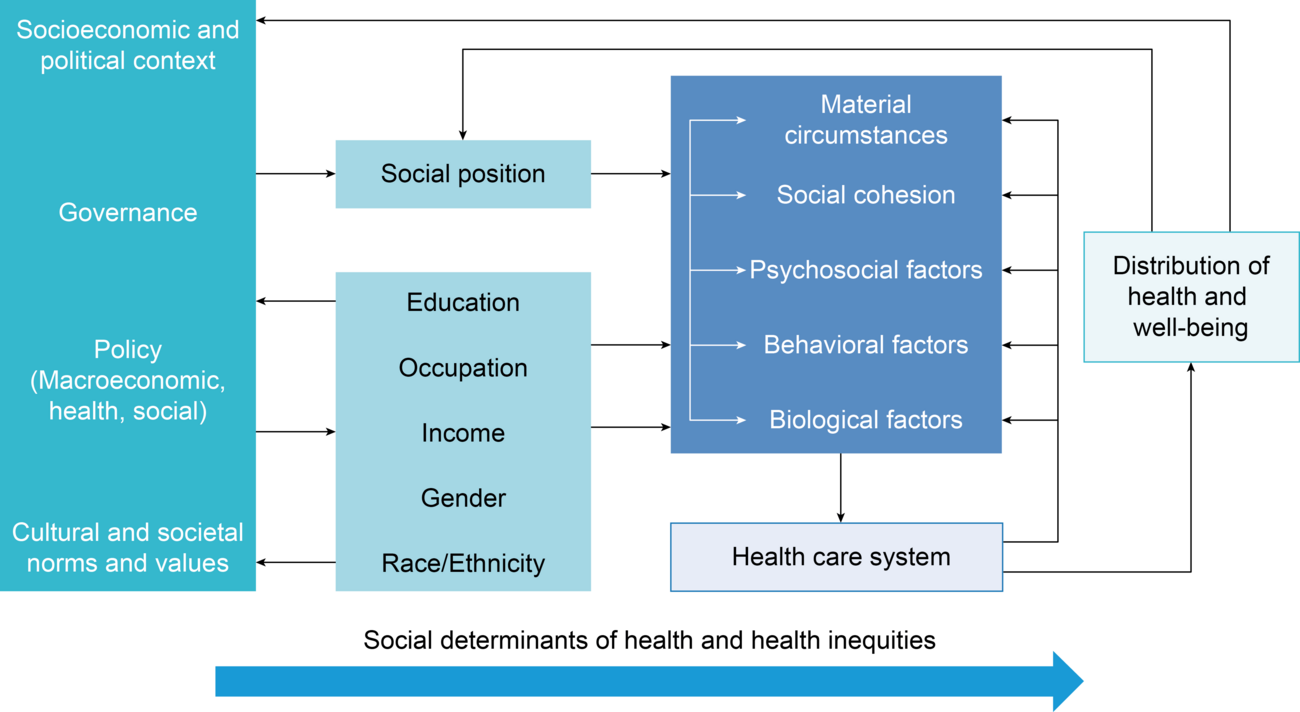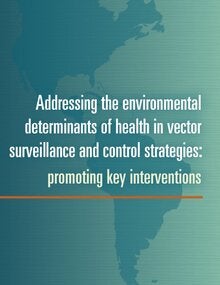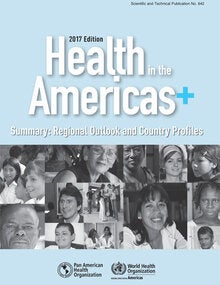The Social Determinants of Health (SDH) are defined by the World Health Organization as “the conditions in which people are born, grow, work, live, and age, and the wider set of forces and systems shaping the conditions of daily life”. These forces and systems include economic policies and systems, development agendas, social norms and policies, and political systems. These conditions can be very different for various population subgroups, and can lead to disparities in health outcomes. The experience of such conditions may simply be unavoidably different, in which case they are considered inequalities, or they may in fact be unnecessary and avoidable, in which case they are considered inequities and therefore appropriate targets for policies designed to increase equity.
- Despite reaching the MDG target of halving the rate of extreme poverty, the reduction in rates in the Americas has slowed to a near halt in recent years. This has severe implications for the Region as poverty has a direct impact on access to decent housing, services, education, transport, and other vital factors for overall health and well-being. In fact, poverty is arguably the single largest determinant of health.
- In order for barriers to be addressed and for progress to be made, it is imperative that social policies recognize the role of gender as a strong structural determinant of health. For example, women have higher health care costs than men due to their greater use of health care services. At the same time, women are more likely than men to be poor, unemployed, or engaged in work that does not provide health care benefits.
Clear emphasis has been placed on the importance of multisectoral action in addressing the SDH, the unacceptability of stark health inequities, and health as a human right. Grounded in equity, action on the SDH in the Region of the Americas requires recognition of the complex and often long-term causes of ill health and health inequity, through research in both social science and epidemiological disciplines. A growing body of evidence has led to intensified action across the global health spectrum with notable national-level engagement in the Region of the Americas. By addressing the fundamental “causes of the causes” of good and ill health, the SDH approach has the potential to remove some of the fundamental barriers that impact health and address some of most intractable health issues in the Region that are closely associated with dimensions of inequity, supporting the progressive transition towards universal health.
Social determinants of health conceptual framework
The Pan American Health Organization’s Strategy for Universal Access to Health and Universal Health Coverage notes that recent improvements achieved in health throughout the Americas were due in part to advances in economic and social development of the countries, the consolidation of democratic processes, the strengthening of health systems, and the political commitment of countries to address the health needs of their populations. The strategy recognizes that policies and interventions addressing the SDH and fostering the commitment of society as a whole to promote health and well-being, with an emphasis on groups in conditions of poverty and vulnerability, are essential requirements to advance toward universal access to health and universal health coverage. There is a clear need to continue efforts to overcome exclusion, inequity, and barriers to access and the timely use of comprehensive health services. Improved intersectoral action is required to impact policies, plans, legislation, regulations, and joint action beyond the health sector that address the SDH.
Mandates and strategies











